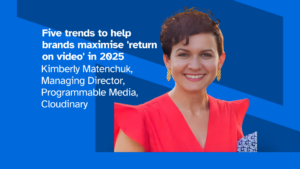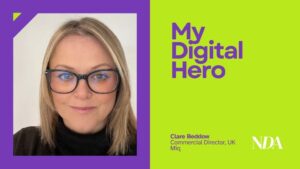By Sophie Wooller Dent, Head of UK, The Programmatic Advisory
I have a confession to make — until last month, the smallest company I’d *ever* worked for had over 200 employees (including student temp jobs for local businesses). This means I’ve always worked somewhere with dedicated specialist functions — HR, Finance, IT, Facilities, Legal — making sure the business could just run, and an established name and reputation to lean on for generating new sales.
At the beginning of September I took the plunge into start-up/small business life and joined The Programmatic Advisory (“TPA”), a specialist digital consultancy. It’s been a fascinating month, getting to grips with a totally different way of working, the team and client base.
The culture shock has been lessened by the fact that many of our clients are large, established businesses, working within systems that I recognise.
The agile ways of working and flexible cultures of start-ups are frequently talked about as attributes big businesses should emulate. I always thought this was unattainable — I was too hampered by process, culture and a long to do list, to suddenly start working like a start-up. However, my first month with TPA has shown me that there a number of qualities that can be copied regardless of business size and age.
So, without further ado, here are six of the lessons I’ve learned from our “small” company that I wish I’d had in my previous “big business” roles.
It is possible to make a decision and implement it on the same day.
I totally appreciate it is easier for me to (literally) turn around and ask the founder than it is to get sign off from a CEO of a company of thousands whose diary is full for the next month. But what decisions are you putting off that you do actually have the mandate to follow through? If you are the CEO, how are you giving your team the space to make good decisions?
Starting from a blank piece of paper is incredibly empowering.
By the time I joined, TPA had tried three different timesheet systems before settling on one which fits with our workflows. Whilst we might have the luxury of having relatively few systems to worry about, the approach of thinking about what we wanted to do — rather than already could — and working back from there pushed us forward to find a really good answer not just an OK one.
The commercials are the responsibility of everyone.
We’re a small business so cashflow is king. Every one of us pays attention to billing and expenses which means we have an appreciation and focus on where money is going. Does every single person in your business understand how you make money, care about getting your bills paid, and about paying your suppliers on time?
Your reputation is an essential asset.
As a consultancy our reputation is based on our output and the interactions our clients have with the team. Fortunately for me, both of these aspects are consistently complimented by our clients. I think every business should care about every single thing that goes out of the door under your logo —physical output (goods, documents, emails), and interactions with your people. Is your business set up to get the best of what you have?
Ask the experts — but try to ask them good questions.
I rewrote our Health and Safety policy when I started (who said start-up life wasn’t glamorous?). A combination of advice from the Health and Safety Executive and an Aunt who has to (professionally) climb into sewers means we have something that we’re confident works.
For critical financial and legal work we have an accountant and a lawyer. We turn to this expert network when we need a decision checking, or when something is completely beyond our capability, but we don’t simply pass the buck. Are your teams embracing responsibility?
Centralised documentation is essential. Even with a relatively small business, and a founder with a really good memory, it’s not enough to have documents scattered across the cloud. Having a centralised (and controlled) way of sharing documents is critical; how much time would your team save if they could just access the document they need rather than hunting it down? Also, the cloud nature of most document storage systems means your internet connection is very very important — be nice to IT.
Of course there are a number of things smaller businesses can learn from the more established businesses — they didn’t get big and successful (only) by accident. I hope I’m adding value at the moment by bringing some of those big business learnings — structure, the willingness to sleep on the big decisions, and an idea of how to scale what we do.
With a bit of luck, I’ll be able to balance these two different ways of operation into something truly powerful.









